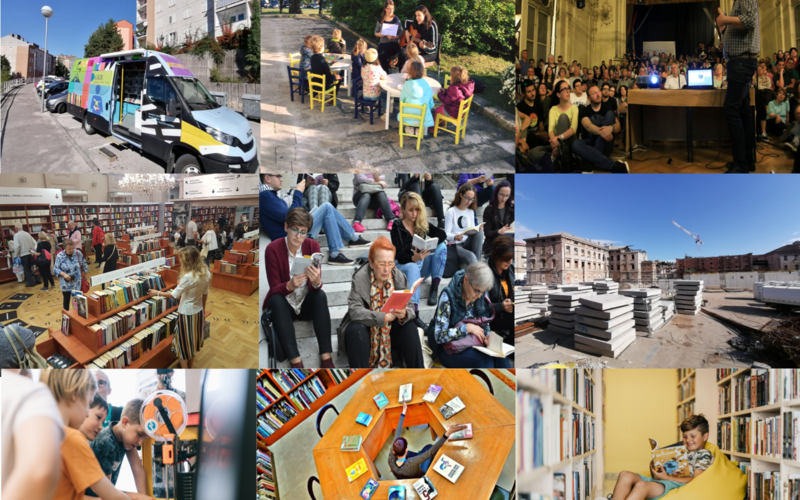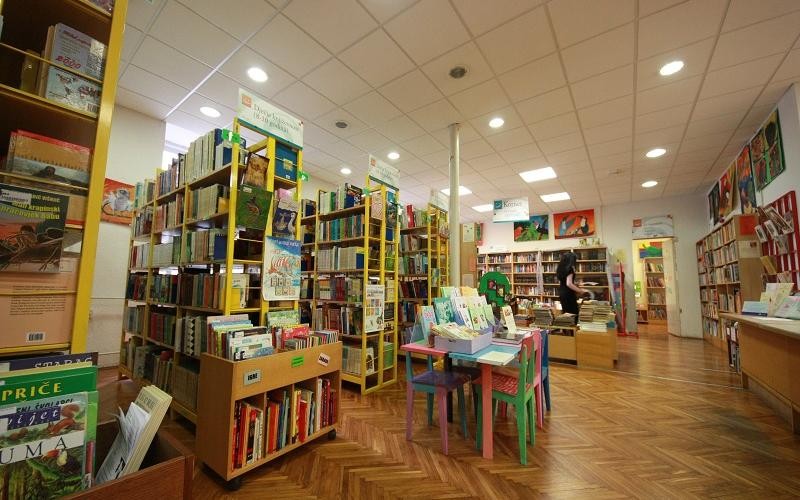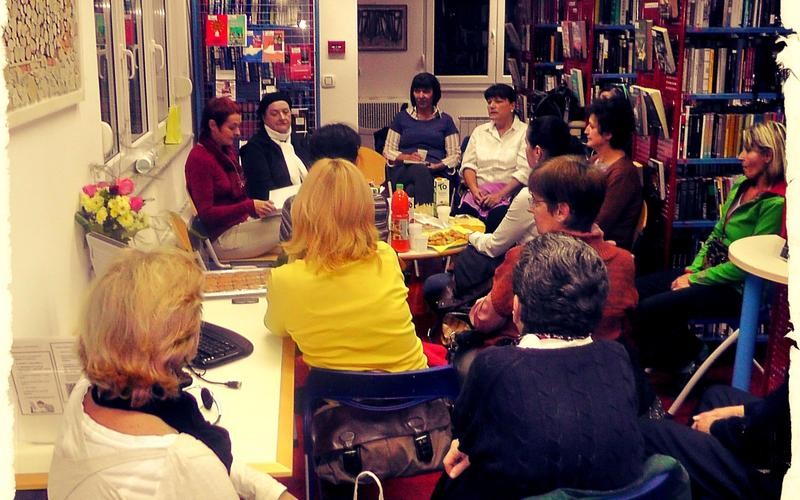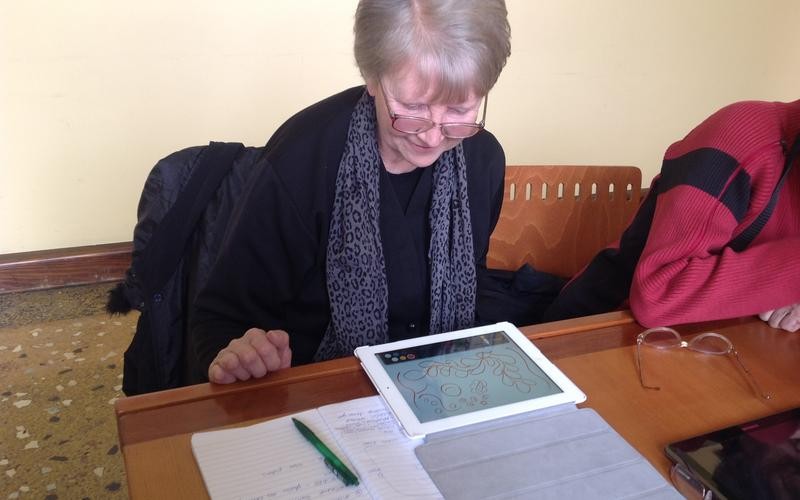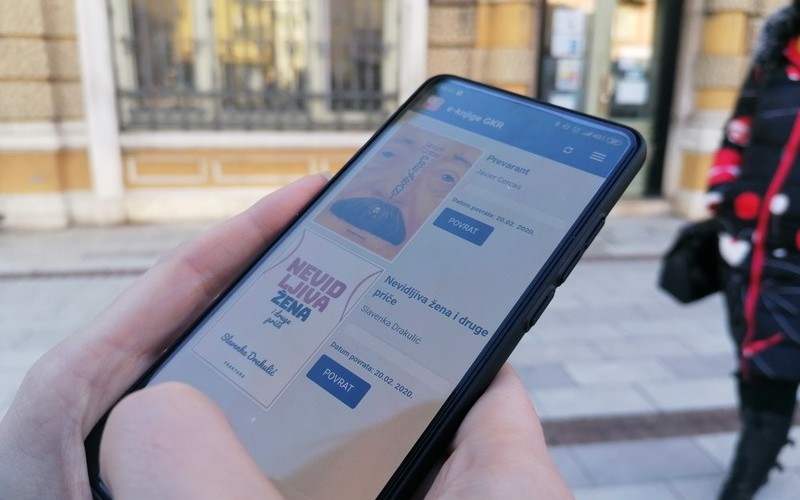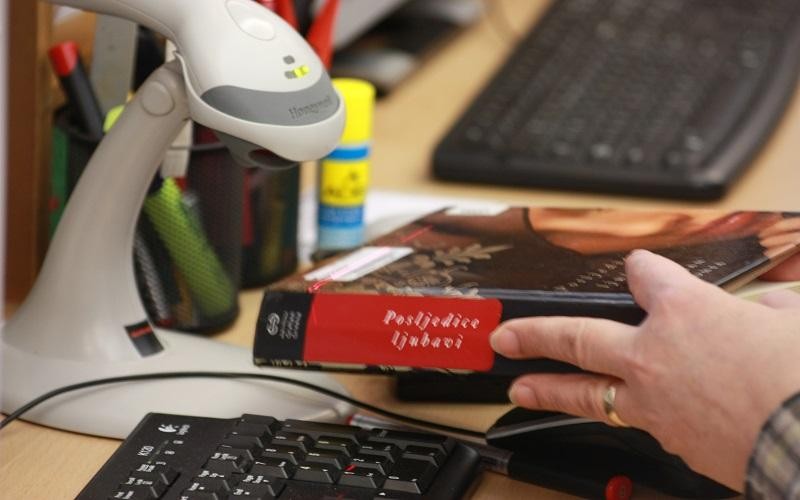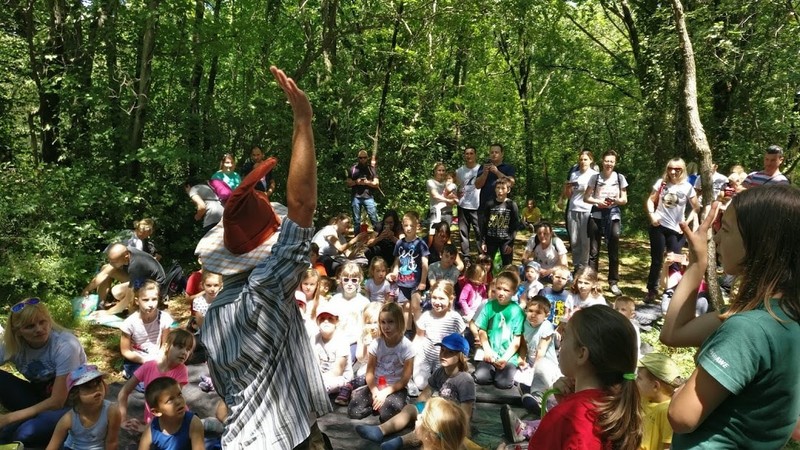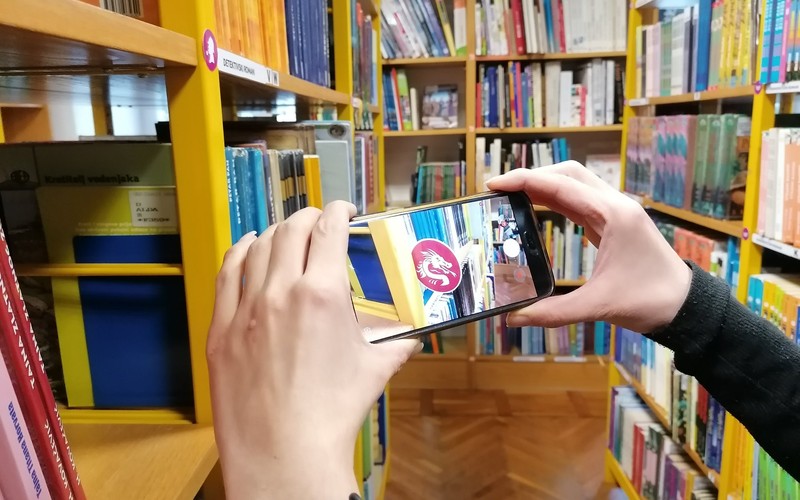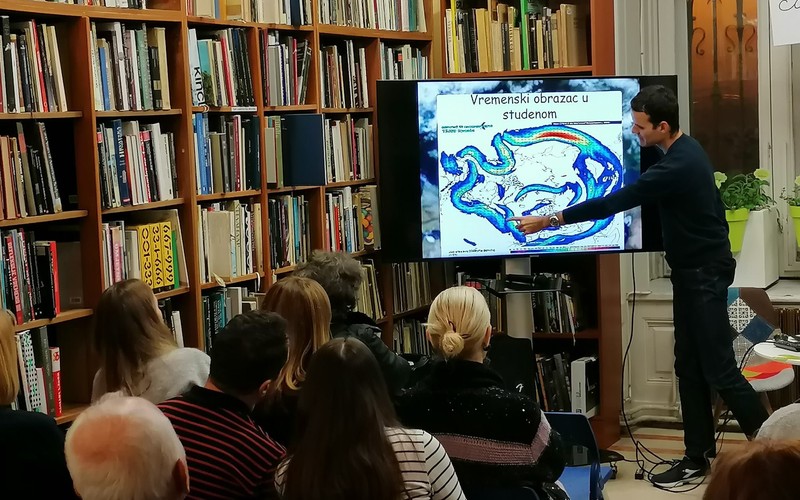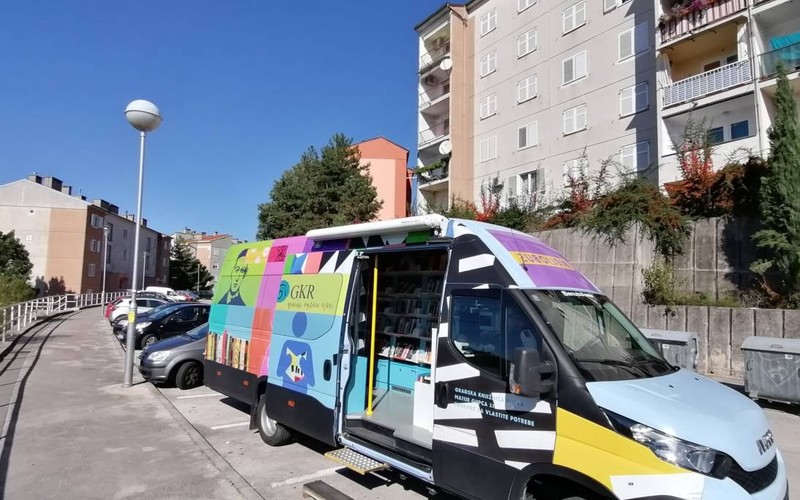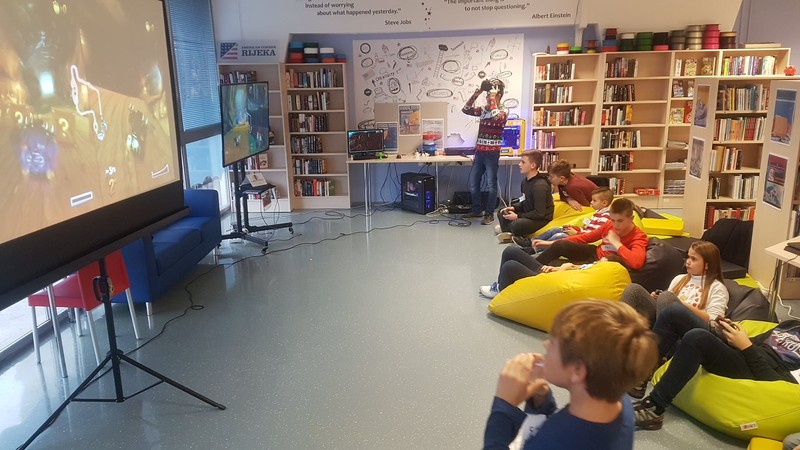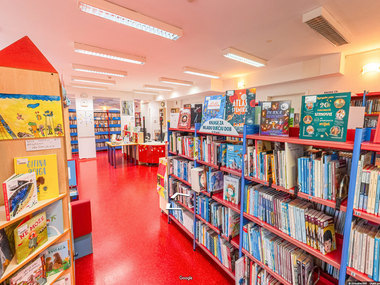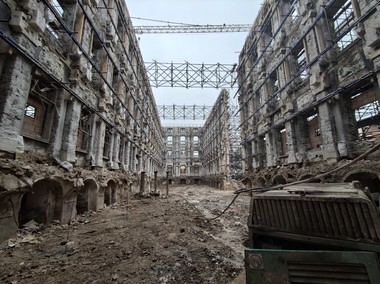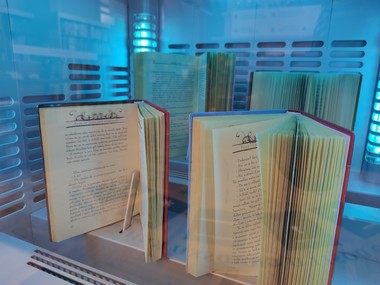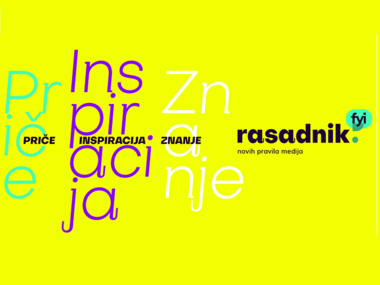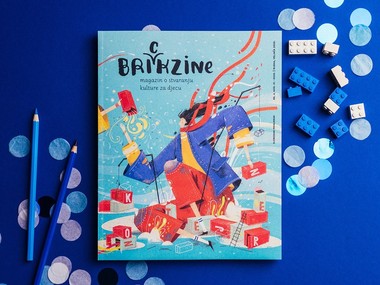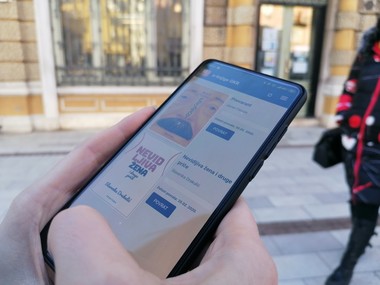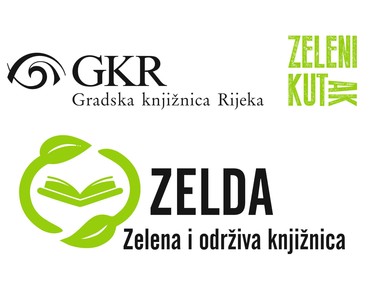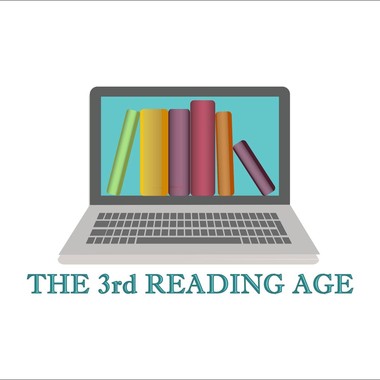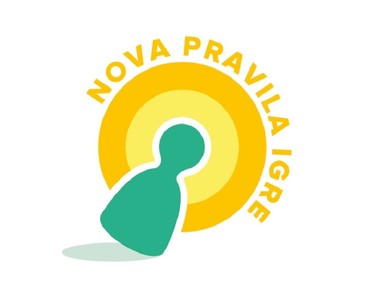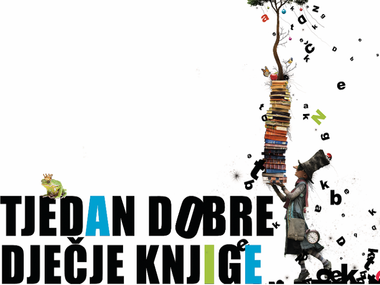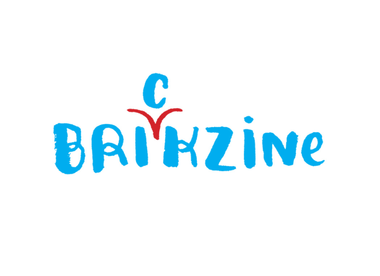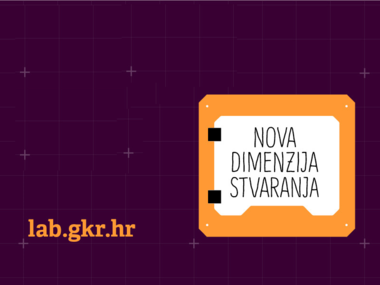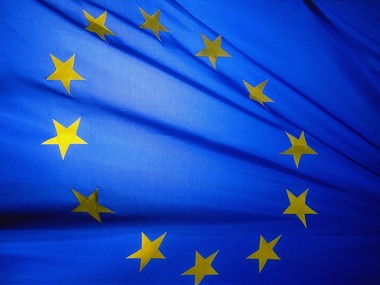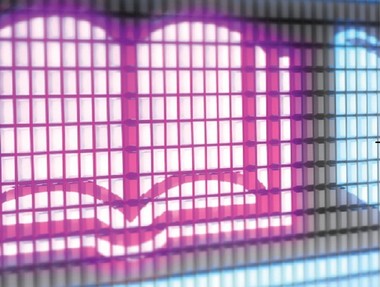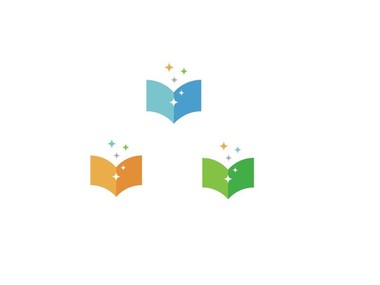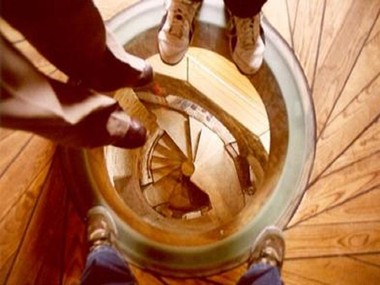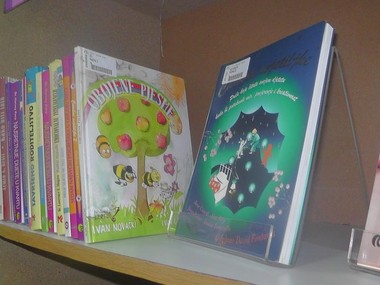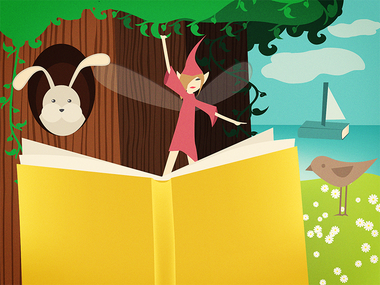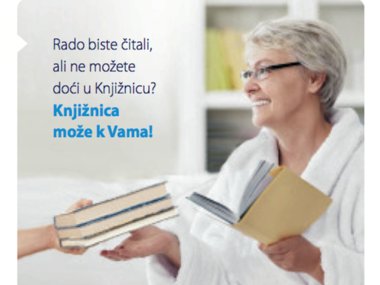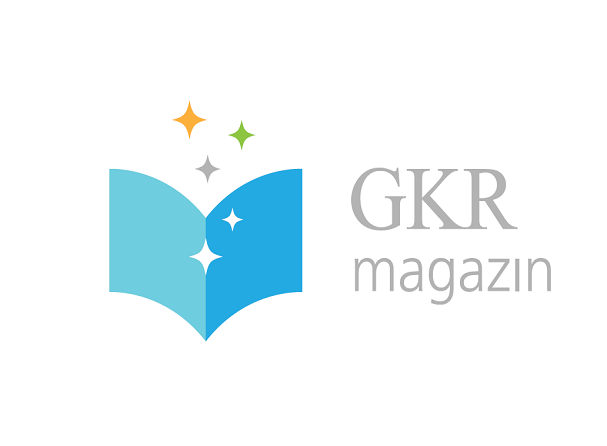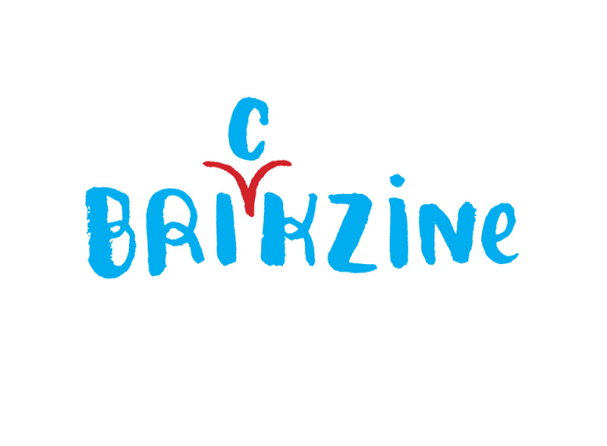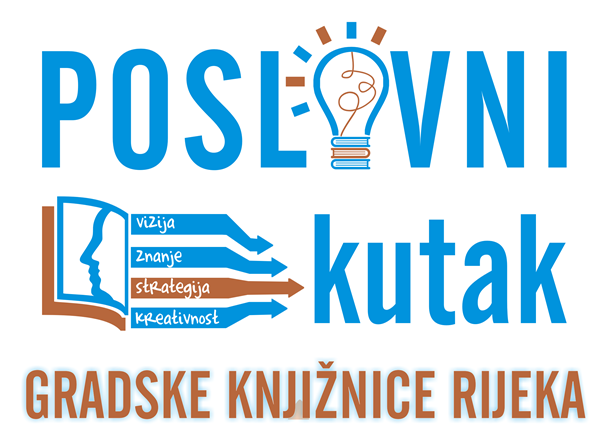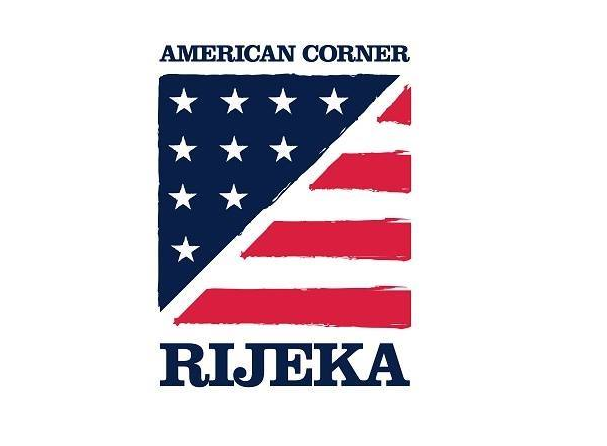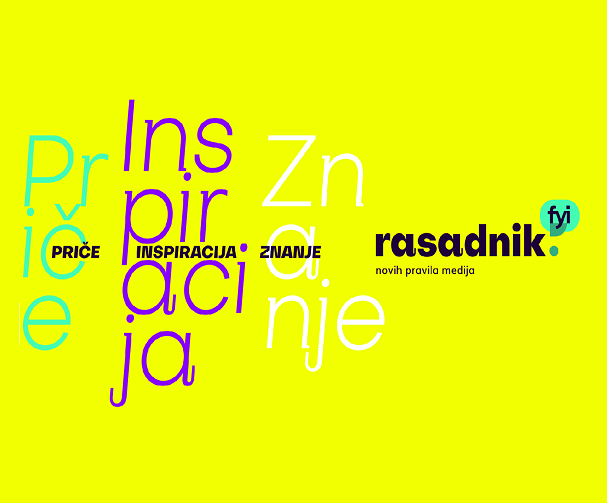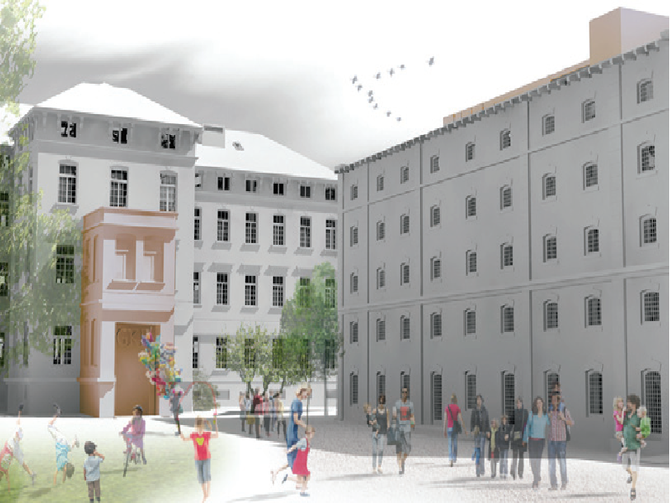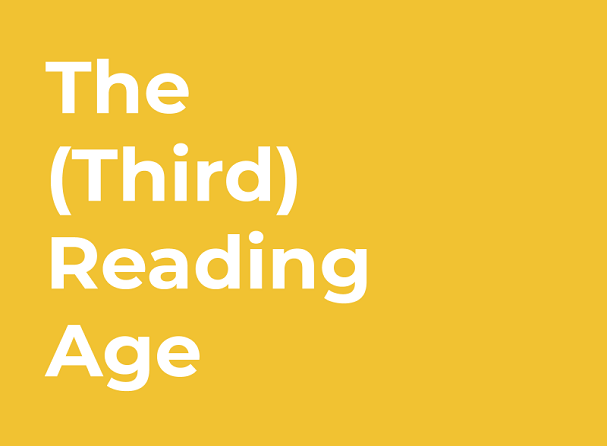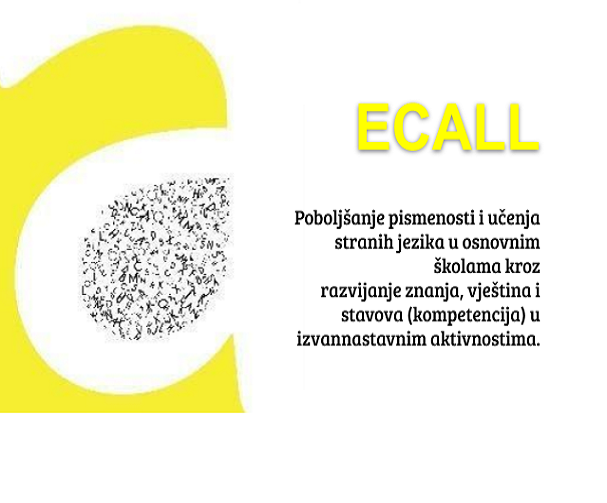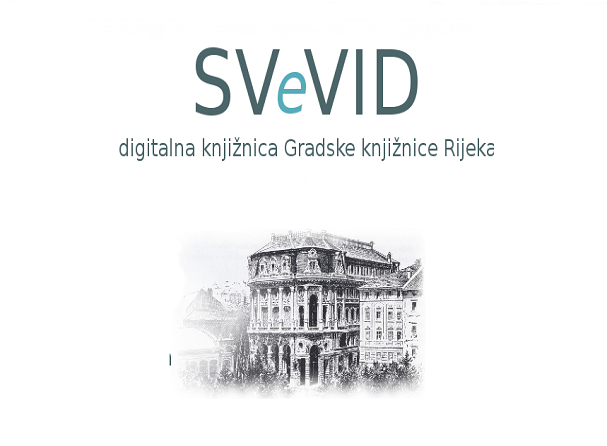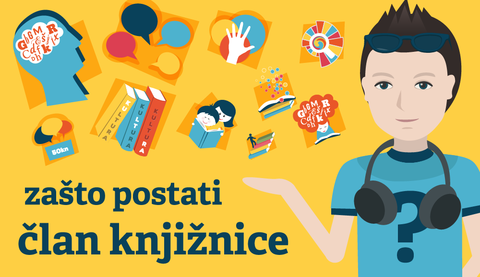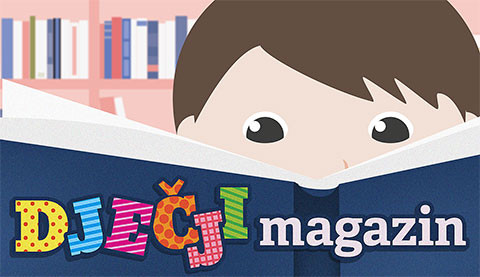Rijeka City Library is the central public library in the City of Rijeka (Croatia) and central regional library for public and school libraries in Primorje-Gorski Kotar County. It is the informational, educational, cultural, communicational and social center of the city and the region.
Would you like to cooperate/make us your partners?
Regular participation in various projects is a part of Library’s regular activities, and one of the most wonderful forms of bringing projects to life is through partnership.
If your institution, company or association needs us as a partner to make a good and valuable idea become reality you can contact us at the following e-mail address: gkri@gkri.hr
We are open for thought exchange and conversation on cooperating options…
If you want to know more about library work here you can follow our news in English.
-
Who We Are...
The City of Rijeka is the principal seaport, the third biggest city in Croatia and the administrative center of Primorje-Gorski Kotar County. The city alone has a population of 128,000 inhabitants while the population of its metropolitan area rises up to 190,000 inhabitants.
Due to its ideal geographical position and substantial sea depth of Kvarner Bay, the city evolved into one of the biggest Central-European seaports and a powerful industrial center early in the Austro-Hungarian period of the 19th century. After the breakup of Yugoslavia and in the transition period, the city economy and life went through a considerable transformation – the manufacturing industry deteriorated, but the importance of service industries became greater while the University of Rijeka became the working and studying destination for as much as 20,000 people. As for the European Union context, the city focuses on new development perspectives in the knowledge industry, cultural and creative industries, biotechnology and the traditionally strong maritime transportation activities.
The vision of Rijeka City Library as...
...the imperative spot of public, open, free society and the meeting point of new ideas; equally accessible to everyone. Simultaneously, the Library is the source of values and instigator of life quality improvement. It incites every individual's growth and prosperity of the society in general.
Our mission is…
…providing opportunities to all citizens, especially those in Rijeka and Primorje-Gorski Kotar County, regardless of their age, sex, social status, nationality, religion, race or any other feature, to improve literacy, to read, to learn, to gain knowledge, to be informed, to strengthen personal, cultural, spiritual and democratic potentials, to have access to and use benefits of modern technologies, to spend their leisure time in a creative way; supporting social inclusion of deprived groups of citizens; promoting Croatian and local literature, language and culture in general; fostering the values of multicultural society; stimulating information literacy and availability of ICT in order to fight digital divide.
The values we strongly believe in and actively promote in our institution are...
...openness
availability
usefulness
quality service
presence in the community
competence/professionalism
adaptability
innovation
creativity
-
Library News
Rijeka City Library at Google Street View: Take a virtual walk through library branches in local neighborhoods
Za sve koji žele prošetati našim ograncima i onda kada fizički ne mogu doći pripremili smo prave Google Street View virtualne šetnje. / Više
Spectacular photos: old industrial district in Rijeka is becoming new library and cultural centre for kids
At the end of chaotic and unusual year 2020 we end it in optimistic tone - a look at the emerging future. Future of the library and reading culture in Rijeka is in the future art district "Ben... / Više
Innovative project: Cleaning of books with special machine in Rijeka City Library
Given that the issue of safety of our users and the community as a whole is one of our basic settings, we decided to take a new step - we equipped the library with a special device for sterilizing... / Više
Green future: library presented new website for youth dedicated to sustainable development
As part of the project New Rules of the Game and working in the field of development "green" media in Rijeka City Library we created - rasadnik.fyi, unique web which is part of libra... / Više
Rijeka City Library published new edition of Brickzine, magazine for kids about culture and art
This is the largest Brickzine so far in terms of number of pages (80), and thus creative collaborators - 15 illustrators made original contributions creating a unique catalog of recent Croatian ill... / Više
Mobile app for e-books on Croatian language available to members of Rijeka City Library
The Croatian e-book market in the Croatian language is very modest, and although most citizens prefer printed titles, it is very important that the legal and professional availability of e-books is... / Više
-
Selection of our projects...
The Library is continuously involved in undertaking projects, organizing activities and campaigns.Whether it entails looking for the oldest children's picture book in the city or participating in EU projects, everything we do makes up the foundation for our existence as a public institution and results in continuously good outcome.
Some of the projects listed here are completed while others are in full swing.
ZELDA - Zelena i održiva knjižnica - edukacija i jačanje kapaciteta
ZELDA je projekt Gradske knjižnice Rijeka sufinanciran sredstvima Europske unije u sklopu programa Erasmus+, a pripada ključnoj aktivnosti obrazovanja odraslih (KA104), te traje od 1. 6.... / Više
The Third Reading Age: (Treća) dob čitanja
Gradska knjižnica Rijeka provodi Erasmus + projekt (KA204) koji stavlja naglasak na suradnju i strateško partnerstvo između država članica Europske unije na polju obrazovanja odraslih osoba. Radi s... / Više
Nova pravila igre/Nova pravila medija
Projekt "Nova pravila igre" odgovara na potrebu za povećanjem razumijevanja koncepta održivog razvoja na svim razinama, a onda i za osmišljavanjem novih pristupa u rješavanju društve... / Više
Tjedan dobre dječje knjige
Tjedan dobre dječje knjige je manifestacija za djecu i roditelje u organizaciji Gradske knjižnice Rijeka posvećena radosti čitanja, čaroliji stvaranja i užitku svakovrsne igre. Namijenjena je... / Više
Časopis "Brickzine"
Brickzine je medijsko-stvaralački projekt koji se razvija u sklopu Rijeka 2020. Europska prijestolnica kulture projekta Brickhouse/Dječja kuća, kao fini softver stvaralačke nadogradnje na beton u k... / Više
Phare/PLDP/OSI/PULMAN-XT
Cooperation with European partners on EU projects entered our everyday work in 1997 when we became involved in Phare/PLDP/OSI project. In picturesque seaside town Lovran we hosted the Interna... / Više
AccessIT Plus
AccessIT Plus is the successor of AccessIT project, which succeeded in developing online educational courses, made for the employees of heritage institutions (libraries, museums, galleries, archive... / Više
Teens for teens
The project began in 1998 by teamwork preparations with a group of younger teenagers in children’s department Stribor and continued with the wave of workshops for teenagers in 2001. The program con... / Više
Tiny Libraries
Pilot-project Tiny Libraries is a continuance of the long-lasting and successful cooperation between two institutions – Rijeka City Kindergarten and Rijeka City Library.A Tiny Library is a collecti... / Više
Stribor's Forest
It is a joint project of the Mountaineering Club “Kamenjak” and the Library under which two activities a year take place – they involve storytelling in natural surroundings and mountaineering hike... / Više
Library at your Doorstep
This is one of our more recent services that entails home delivery of books to senior and disabled citizens with home address within the city of Rijeka, who, due to their limited or non-existent mo... / Više
Bedtime Storyteller
In cooperation with Portić association, we are supporting storytelling for children with malignant diseases. Our goal is to help with minimizing negative consequences of hospitalization. The activi... / Više
-
Glance Into the Past
1849
Narodna čitaonica riečka (Rijeka Public Reading Room) was established. Public Reading Room was the center of spreading literacy and information as well as an important element in the complex political and social situation of city life, and today it is a constituent part of Rijeka City Library.
1905
Under the leadership of famous Croatian politicians and social activists Ante Trumbić and Frano Supilo The Rijeka Resolution was passed in the Public Reading Room, one of the most important documents for political life of the then Croatia as a part of Austro-Hungarian Empire.
1919
In the midst of happenings that evolved around Rijeka after the First World War, Rijeka Public Reading Room was destroyed by the Gabriele D'Annunzio soldiers who formed the independent country in Rijeka, according to many the first fascist political unit in the world. Those were very rainy days for the reading culture in Rijeka as that is also the time the great book printing office Miriam was destroyed.
1947
After the Second World War, Rijeka Public Reading Room, now on the street named The Red Army Corso, assumed the role of a public library. The new communist government spread the motto “Book to the people!” which would incite formation of new reading rooms and libraries in the following period.
1955
Public Reading Room “Mlaka” and children’s library “Sušak” are established, and the latter soon began hosting storytelling activities for the youngest. Stories were often reproduced from vinyl records as well. This marked the beginning of enhanced work with children.
1960
Children’s section of the Public Reading Room is established under the name “Beli kamik” which would become the cult growing-up place for many generations of citizens.
1966
The Library is relocated to Palazzo Modello, architecturally beautiful building from the Austro-Hungarian period, that would, in the following decades, become a recognizable symbol and the destination to visit in order to get one’s favorite piece of literature. An interesting fact is that, before the Library was moved to the building, Palazzo was occupied by Rijeka City Bank! The new building brought the increase in the number of library members.
1973
Libraries are funded from the same source as all the other cultural institutions in Yugoslavia – from the tax money acquired from sales of pulp fiction and liquor!
1989
The Library acquired software for library catalogue and circulation. This marked the beginning of computing era in the Library.
1995
The Library gets CARNet connection along with only two other libraries in Croatia, entering the Internet era. Rijeka Public Library became the first Croatian public library to provide Internet access to its members, free of charge!
1999
Program “My favorite book” marked the start of activity series teenagers conducted themselves for their peers! It may sound trivial now, but at that time it was a substantial turnaround in the way citizens co-lived with the Library.
2004
In cooperation with Primorje-Gorski Kotar County government, the County Bookmobile Service is established with the goal to provide library services to towns in Gorski Kotar and other mountain areas of our County.
Librarian Verena Tibljaš received the IFLA- Poster Session of the Year Award.
2005
After the announcement of the tender for the preliminary architectural design of Rijeka City Library at Klobučarić Square, professor Hrvoje Njirić’s solution was awarded. Unfortunately, after many years of waiting for work on the new building to begin and insufficient funding, the project was abandoned in 2012 and the decision was made to start a new library project in an existing 19th century building within abandoned industrial complex. According to the City of Rijeka cultural strategy, the project should be finished by the year 2016 and would involve a specific transformation of former industrial facilities into a public library.
The Library undertook the organization of the 1st FestivalofCroatian Mobile Libraries and the 7th Round Table on Mobile Libraries with international participants.
The Library’s very first website was published.
